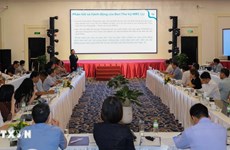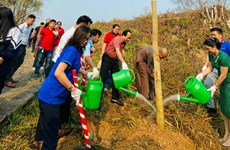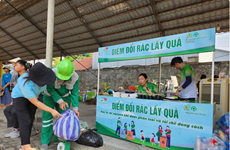Ministry warns IZs to clean up their polluting act
The development of industrial parks and export processing zones will have an adverse impact on the environment if measures are not taken to treat waste, according to the Ministry of Planning and Investment (MPI).
Only a fifth of the country’s 230 IPs and EPZs have consolidated wastewater-treatment facilities which treat a mere 30 percent of the total effluents.
Even some IZs and EPZs that have treatment facilities face problems because they operate perfunctorily and erratically while some lack the funds to operate, according to the Vietnam Urban Environment and Industrial Zone Association.
The untreated wastewater released by the zones is 1 million cu.m a day, accounting for over a third of the country’s total wastewater.
The association also estimates solid industrial wastes at IPs and EPZs will reach 4.9 million tonnes a year by 2010, mostly in Hanoi, Da Nang, and Ho Chi Minh City.
Toxic waste, which accounts for 25 percent of total waste, is mostly discharged by light and chemical industries. It is not treated properly since most zones have no facilities for collecting and treating it.
Most of the solid waste is incinerated or sent to garbage dumps, according to the association.
Toxic substances released in the air at IPs and EPZs, such as sulphur dioxide, carbon monoxide, and nitrogen dioxide also exceed permitted levels by two to six times.
The association blames this on ill-equipped treatment facilities at factories in IPs and EPZs.
The MPI said the national zoning plan envisaged setting up 91 new IPs with a total area of 20,800ha by 2015 and expanding 22 existing IPs by 3,500ha.
It is targeted to triple the number of zones having waste-water treatment facilities that meet environmental standards to 65 percent this year and reach 100 percent by next year.
But to achieve this, determination and close cooperation between relevant agencies and targeted measures are needed according to the Ministry.
Tran Ngoc Hung, deputy head of the MPI’s Industrial Park Management Department, said the ministry was working with the Ministry of Natural Resources and Environment to draft regulations for protecting the environment at IPs and EPZs.
They were likely to be released this year./.













